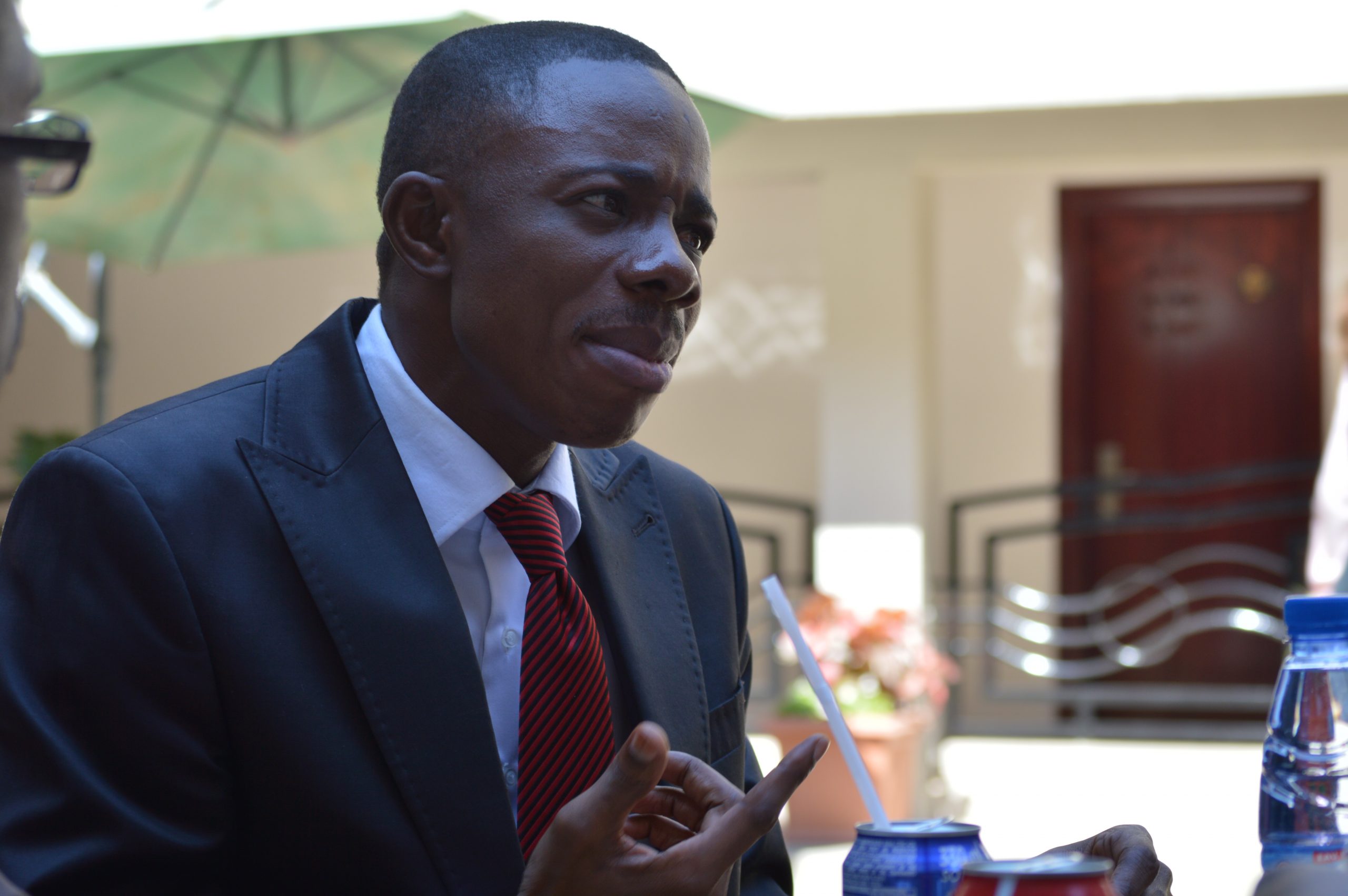
Human rights defender's story: Jean-Pierre Okenda from the Democratic Republic of Congo
Jean-Pierre Okenda champions human rights in the DRC's extractive sector, advocating for legal reforms and community empowerment.
After a number of years working with human rights organisations, Jean-Pierre Okenda has taken his own route toward improving human rights impacts of extractives projects in his country. His role, as coordinator for a platform of civil society organisations in the mining sector, involves a great deal of immersion in books and texts, but also with people. ISHR spoke with Okenda on the margins of a meeting of the African Commission to hear his story.
Defining the problem in DRC
In the context of the DRC, it was absolutely critical that I redirect my work to make clear the connection between human rights and the extractive sector, and that meant research. It means understanding the global stakes of the issue. It meant explaining how bilateral relations and investment treaties really impact ordinary citizens and their rights.
Research for research’s sake is not Okenda’s goal. He aims to develop networks, training, and tools to empower affected communities and other organisations to better document, understand, and evaluate the human rights impacts of a project. He also emphasises the role of research in strengthening peoples’ understanding of the links between human rights, extractives industries, and taxation, incomes, and other ‘technical’ issues. He also urged legal reforms to help protects human rights at the local level.
From the ground up
Building relationships with the government and enterprises is a challenge – but it is possible, if one understands where they start from.
I sent a questionnaire on human rights to local and national authorities, and you know what? There was, aside from a small amount of general familiarity at the central level, a total gap in terms of human rights knowledge. This made it clear that – sometimes – violations arise because of this lack of awareness or training. And yet, they are still responsible for protecting and realising these rights!
‘It is important,’ he added, ‘that they know what we are looking for when we come and ask for such and such a document’.
With corporations, it is the same. They limit themselves to two things: to the legal framework, and to the business’s internal priorities and policies. If they don’t have an internal policy, it’s likely that they don’t know a thing about human rights. To get them to think about human rights, it is critical to use another language they will understand, the language of professionalism.
To further insist on empowering local communities and civil society to act, Okenda noted the critical importance of having decentralized human rights institutions, so that even communities far from Kinshasa could seek resources and assistance to combat violations and abuses. ‘There is a growing global move toward more participation of civil society, in decisions related the politics and planning, in addition to the implementation. We need to see this apply in the area of extractives as well.’
The participation at the global level of local communities in the conversation about human rights and businesses is important. But the ability to participate is limited, said Okenda, and so while human rights are central to the resolution of the issue, they will always be limited by governments’ hypocrisy, by neoliberalism, the financial crisis, and other geostrategic concerns.
Risks to defenders: evident and pervasive
Okenda is clear: risks do exist, for all human rights defenders, including intimidation, violent attacks, denunciation, and abusive prosecutions. For those working on investment and extractives issues, the problem is that these might sometimes be the very same individuals or institutions (e.g., government agencies) that are meant to be protecting the people.
So, according to Okenda, defenders face every day a personal dilemma – to do what they think is right and defend a community’s interests, or to protect their property and the lives of themselves and their families. In addition to overt risks, some defenders face pressure from their families themselves, who worry about the impact of rights defence work on safety and security. ‘When the family becomes vulnerable, you are really weakened, too.’
Nonetheless, concluded Okenda: ‘even if there are risks, even if we human rights defenders face failure or lose patience, it is essential to keep speaking out. Silence is the biggest threat’
Okenda remains optimistic in his work. Efforts to encourage the government to recognize human rights defenders, and – along with corporate actors – see defenders as partners as opposed to adversaries, will be key.
In the weeks and days leading up to the UN Forum on Business and Human Rights, ISHR will publish a series of articles by leading experts including human rights defenders, UN representatives, diplomats, businesses and international NGOs. Each article will include an analysis of the important role of human rights defenders and will be compiled in a special edition of ISHR’s Human Rights Monitor, to be launched in English, French and Spanish on November 9. The views expressed in the pieces are personal and do not necessarily represent the position of ISHR.
